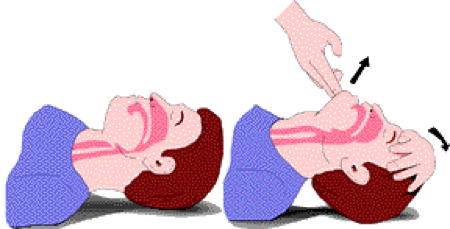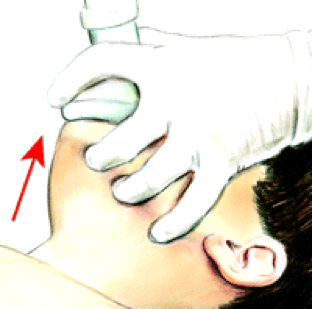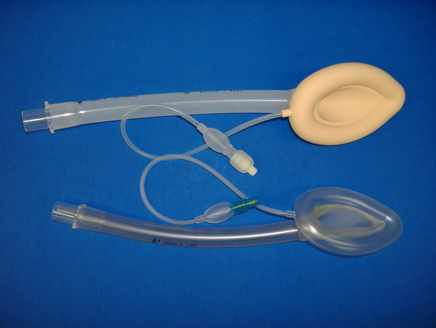|
Chapter 12 : Tools and Techniques for VentilationIt is imperative to know the proper usage of airway and respiratory devices for the management of various cardiac problems and related medical emergencies. ACLS Certification of Airway Tools Video:Basic Airway Tools and TechniquesObstruction of the airway during cardiac arrest is usually due to the relaxation of muscles in the throat causing the tongue to fall back and occlude the airway. The methods to open the airway include: head tilt–chin lift, jaw thrust, mouth-to-mouth ventilation, mouth-to-nose ventilation, mouth-to-barrier device ventilation, and bag-mask ventilation. The head tilt–chin lift is the best method for opening the airway.
The jaw thrust method is used when there is a suspected head or spinal cord trauma.
Bag-Mask Ventilation: This device has a ventilation bag attached to a face mask and provides positive pressure ventilation of 600 ml tidal volume.
Advanced Airway Tools and TechniquesThere are many different devices used for advanced airway access and their use depends upon the training of the individual administrating the technique.
Learning Outcomes:You have completed Course IV. Now you should be able to:
|
It is imperative to know the proper usage of airway and respiratory devices for the management of various cardiac problems and related medical emergencies.
Obstruction of the airway during cardiac arrest is usually due to the relaxation of muscles in the throat causing the tongue to fall back and occlude the airway. The methods to open the airway include: head tilt–chin lift, jaw thrust, mouth-to-mouth ventilation, mouth-to-nose ventilation, mouth-to-barrier device ventilation, and bag-mask ventilation.

Bag-Mask Ventilation: This device has a ventilation bag attached to a face mask and provides positive pressure ventilation of 600 ml tidal volume.

There are many different devices used for advanced airway access and their use depends upon the training of the individual administrating the technique.


You have completed Course IV. Now you should be able to:
Recognize the different airway devices